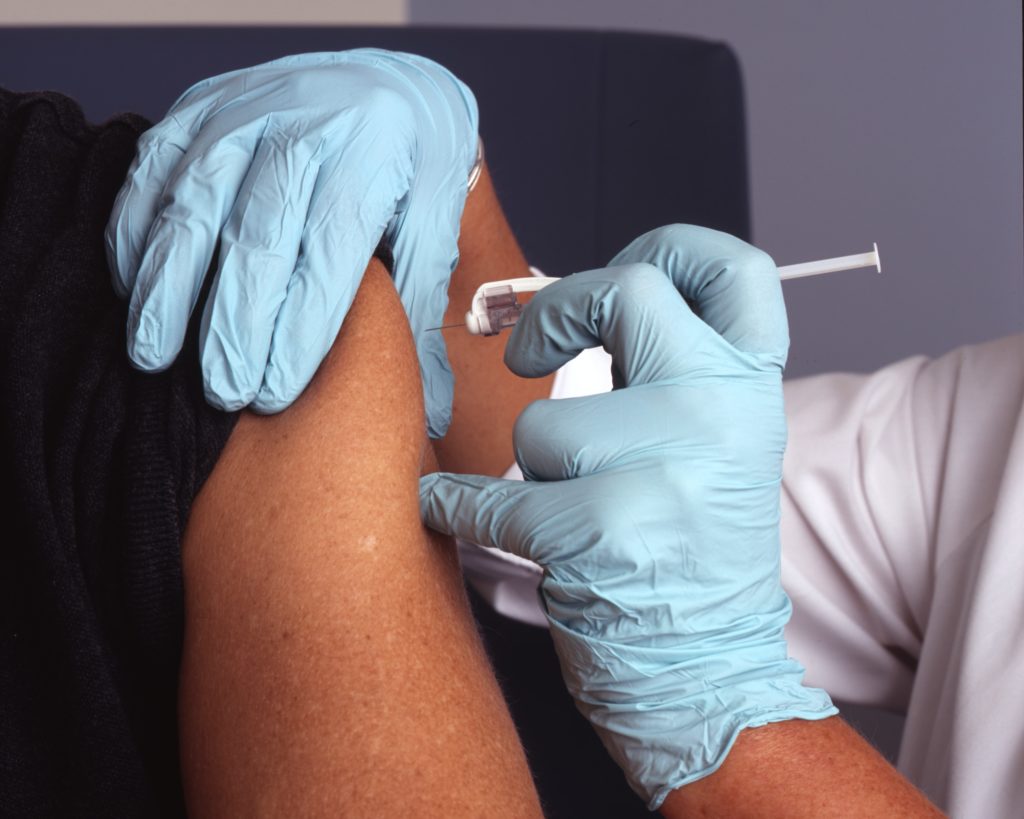A study of more than eight million people has found no increased risk of rare neurological events after COVID -19 vaccination.

However, the researchers did find a higher risk of Bell’s palsy (facial weakness), encephalomyelitis (inflammation of the brain and spinal cord) and Guillain-Barré syndrome (a nerve condition) after COVID-19 infection.
The study, which was supported by the NIHR Oxford Biomedical Research Centre, was published by The BMJ.
Following reports that some people developed Guillain-Barré syndrome after receiving the Oxford-AstraZeneca or Pfizer-BioNTech COVID vaccines, the European Medicines Agency listed Guillain-Barré syndrome as a rare side effect of these vaccines.
However, so far, the results from research into the risk of Guillain-Barré syndrome – and other immune-mediated neurological disorders – after COVID-19 vaccination have been mixed.
To address this, researchers, led by Professor Daniel Prieto-Alhambra of the University of Oxford’s Nuffield Department of Orthopaedics, Rheumatology and Musculoskeletal Sciences, set out to study the association between COVID-19 vaccines, infection with SARS-CoV-2 (the virus responsible for COVID-19), and risk of immune mediated neurological events.
Their findings are based on data from two large electronic primary care health record databases in the UK and Spain.
They included 8.3 million individuals who received at least one dose of a COVID-19 vaccine (Oxford-AstraZeneca, Pfizer-BioNTech, Moderna or Johnson & Johnson), 735,870 unvaccinated individuals with a positive COVID-19 test result, and 14.3 million individuals from the general population.
The team were interested in four immune mediated neurological disorders: Bell’s palsy (facial weakness), encephalomyelitis (inflammation of the brain and spinal cord), Guillain-Barré syndrome (a nerve condition), and transverse myelitis (inflammation of the spinal cord).
Rates of these disorders were estimated in the 21 days after the first vaccine dose, 90 days after a positive test result, and between 2017 and 2019 for background rates in the general population group.
Overall, the researchers found that post-vaccine rates were consistent with expected (background) rates for Bell’s palsy, encephalomyelitis and Guillain-Barré syndrome. Rates of transverse myelitis were rare (less than five events in all vaccinated groups) so could not be analysed.

Rates of Bell’s palsy, encephalomyelitis and Guillain-Barré syndrome were, however, higher than expected after COVID-19 infection.
This is an observational study so cannot establish cause, and the researchers cannot rule out the possibility that unknown differences between groups or misclassification of disorders may have affected their results.
But they point out that several other studies have also reported increased risks of immune mediated neurological events after COVID-19 infection, suggesting their results are robust.
As such, they say: “We found no safety signal for any of the studied immune mediated neurological events after vaccination against COVID-19. Infection with SARS-CoV-2 was, however, associated with an increased risk of Bell’s palsy, encephalomyelitis, and Guillain-Barré syndrome.”
Further evidence is needed to understand the long-term adverse events of vaccination and SARS-CoV-2 infection, while larger cohorts are also needed to study the effect of vaccination on different age groups, particularly among younger populations, they add.
In a linked editorial in the BMJ, experts say it is important to note that all risks – even those observed after SARS-CoV-2 infection – are small in absolute terms for the single individual. However, they note that even small absolute risks “can lead to a substantial burden on the healthcare system in the context of mass vaccination and widespread infection.”
Researchers and clinicians have a responsibility to discuss these findings with affected patients and their families, they say, while at the same time acknowledging the inherent uncertainties in making patient-level inferences from population level studies.
One approach would be to explain that although neurological conditions do occasionally occur shortly after COVID-19 vaccination, good evidence from very large studies shows that these conditions are no more common among vaccinated people than among unvaccinated people.
“We may never be able to tell exactly what caused an individual to develop a neurological condition, but COVID -19 vaccination is a highly unlikely reason for most,” they conclude.